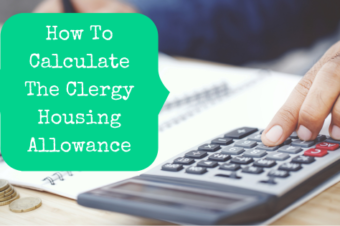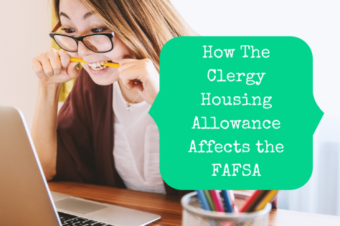
A federal judge has ruled that the cash housing allowance for clergy is unconstitutional. What happens next and what does this mean for you?
Back in 2013, the Freedom From Religion Foundation sued the US government. They claimed that the clergy housing allowance was unconstitutional because it unfairly favored religious workers. US District Court Judge Barbara Crabb agreed with them.
However, the decision was reversed when appealed. The Seventh Circuit Court of Appeals found that the plaintiffs lacked standing. You see, believing something is unfair is not enough, you have to actually have been injured to go to court. Since they had never been denied a housing allowance for not being ministers, they had no right to sue.
The Case: Gaylor V Mnuchin
So, the Freedom From Religion Foundation leaders decided to earn themselves the right to sue. They tried to take a housing allowance and when the IRS finally denied it, they went back to court.
They brought basically the same case before the same judge and got the same result. The only significant difference was that this time the plaintiffs had standing and had a right to sue. The court agreed that the clergy housing allowance violates the establishment clause of the First Amendment because it “does not have a secular purpose or effect and because a reasonable observer would view the statute as an endorsement of religion.”
The Ruling: IRC Section 107(2) Is Unconstitutional
On October 6, Judge Crabb ruled that Section 107(2) of the Internal Revenue Code is unconstitutional. Section 107(2) is the law that provides “ministers of the gospel” a cash allowance designated for housing. The parsonage allowance was not a part of the court case and therefore is not affected by the ruling.
Judge Crabb, however, stayed (suspended) enforcement of her ruling so that all parties involved could give their opinions on what should be done about it. Should the housing allowance be expanded to include secular employees whose jobs naturally restrict their housing options? Should it be done away with completely?
The Final Word: Final Opinion And Order
On December 13, 2017, after reviewing all of the briefs, the court issued its final opinion and order. The court declared that section 107(2) violates the establishment clause of the First Amendment to the US Constitution and is therefore unconstitutional.
As a result, the US government is enjoined (prohibited) from enforcing it. The IRS has 180 days after the conclusion of any appeals or the deadline to appeal, whichever is later, to do away with section 107(2).
The Implications: What This Means For You
What happens next? They will most likely appeal the case. Though they can’t appeal on the same grounds as in the previous case, the defendants will probably try something else. This is a monumental case that affects thousands of ministers and could go all the way to the Supreme Court.
What should you do about it? First of all, don’t panic. Things will take awhile and it is highly unlikely that the clergy housing allowance would be eliminated retroactively, forcing you to pay back taxes.
You should start planning, though. What will you do if you no longer have a housing allowance? How much more will you owe in taxes? Is your church willing or able to raise your salary to compensate? How can the church position itself to be able to do so if the housing allowance does go away? What can you do to make ends meet if the church can’t cover the difference?
The clergy housing allowance plays a huge role in many pastors’ finances. It can be hard to sit and wait while its fate hangs in the air like this. In times like these, it’s important to remember Who your provider is. We trust in God, not the US government. I know he will take care of you, even if it comes in the form of a side business instead of a housing allowance. He will never leave you nor forsake you, praise God!




2 Responses
Dan Mead CPA
January 17, 2018Here is some thoughts. Clergy are not the only group that have carve outs that benefit their specific group. Farmers have carve out, truckers have carve outs as well as the oil and gas industry. I think the Judge in case will have a difficulty argument at the appeal level when this argument is considered with all the other special tax laws that can not be taken by everyone.
There are always the devils handy men out there working to cause a problem for all clergy. Section 107 covers all religions not just Christian. I’m comfortable that it will be dismissed at the appeal level or maybe the Supreme Court.
Thank you for bringing this issue to my attention. I am in Texas so until it goes national I will keep using section 107 as as always.
Amy
January 18, 2018It will be interesting to see what ends up happening with this and if it will have any affect on the other groups that have special benefits like you mentioned. Even if Section 107 is ultimately repealed, it could take years, so by all means keep taking advantage of it while you can!